Dozens take their own lives in Assam as two million people are told they may be stripped of Indian citizenship
Described as ‘shocking, shambolic and shameful’, the state’s register of citizens is rumoured to be arriving in other Indian states too. Adam Withnall reports on the latest BJP ruling that is playing with people’s lives

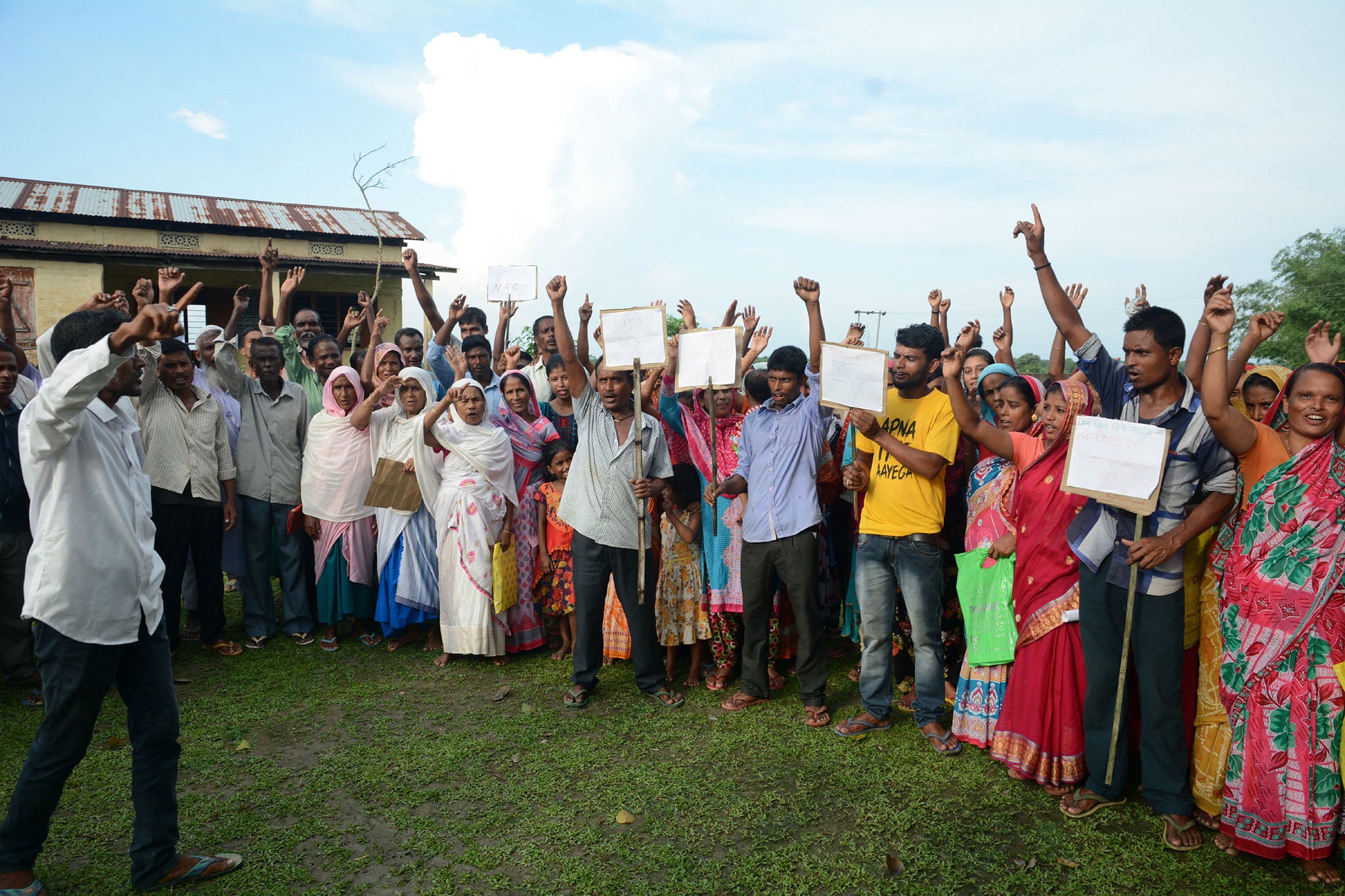
It was supposed to be the ultimate fix to weed out illegal immigrants, administered by a right-wing ruling party that dubbed them “termites”. Now, despite bizarre results, UN concerns and dozens of suicides directly linked to the shambolic process, senior politicians across India are talking about rolling it out nationwide.
The National Register of Citizens (NRC) was published online in its final form at the weekend. Applying only to the verdant, tea-growing northeastern state of Assam, its creation has cost the country 1.5bn rupees (£16m) and the work of more than 52,000 officials. The human cost of the process, however, is a lot harder to calculate. As things stand, nearly two million people in Assam have been told that they are not citizens and, unless they successfully appeal, they face an uncertain future that could include being made stateless or put in a detention camp.
All of the state’s 33 million residents were invited to apply to be included on the NRC, and asked to provide potentially dozens of documents that proved they or their descendants were residents of the state before 1971. That date is significant. Assam, with the draw of work at its tea plantations and a porous, 262km-long border with Bangladesh, has long been subject to migration from both other countries and other states.
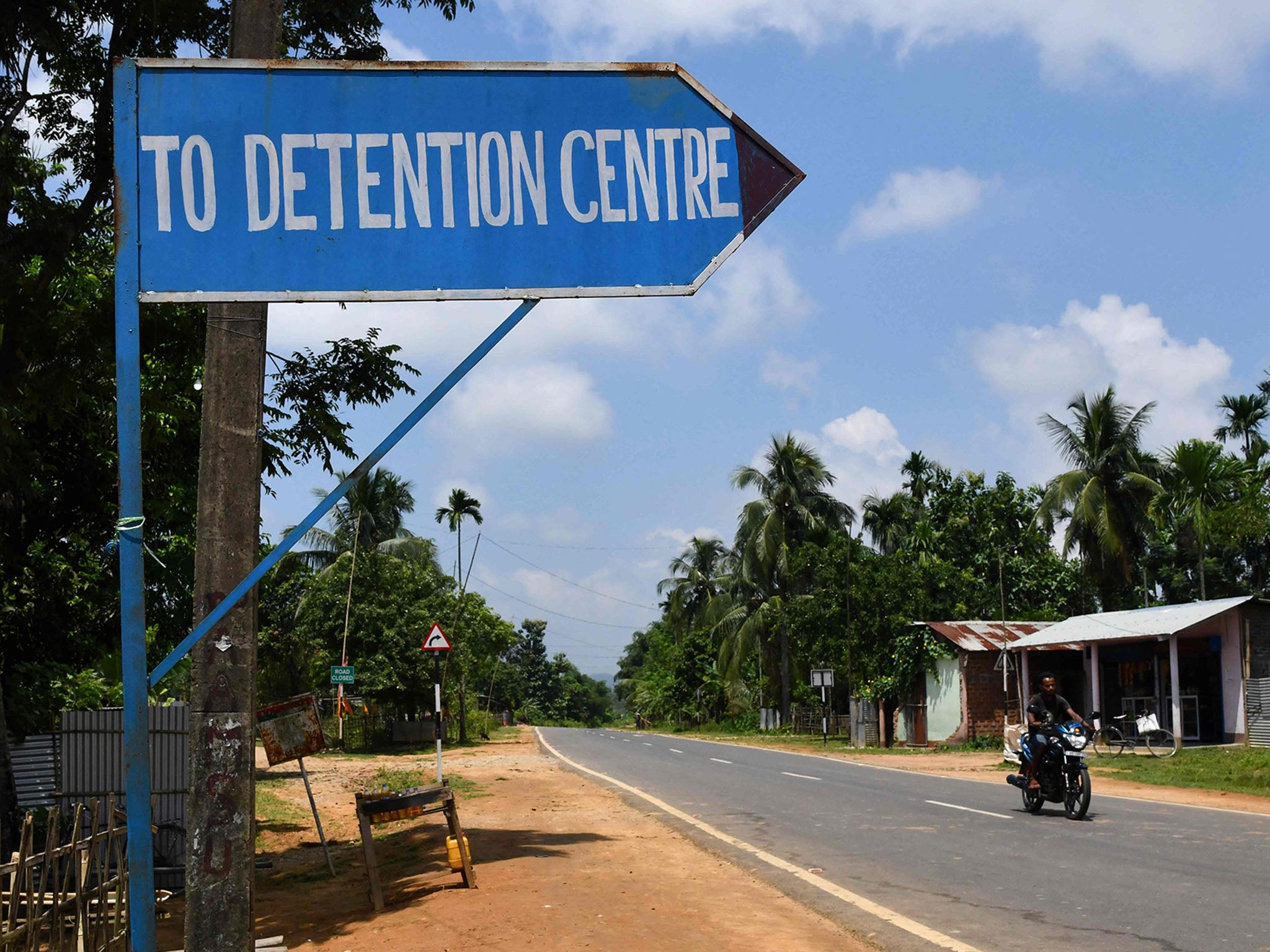
The politicisation of this migration – immigrants were accused of threatening Assamese traditions and the rights of indigenous populations – led to violent clashes in the 1980s in which more than 2,000 Bengalis were killed by mobs, and no one ever prosecuted. In 1983, the government agreed to take action to curb illegal immigration and plans were made to update the original 1951 NRC, but the scale of the task meant it was put off indefinitely.
Finally, in 2013, the Supreme Court of India ordered the update to go ahead, and said that the cut-off point after which a family would be considered illegal immigrants would be 1971 – the date of the formation of Bangladesh, and a period when high numbers of refugees fled across the border to escape violence.
Critics said the process was little more than a thinly veiled, court-approved act of Islamophobia, designed to identify people vilified by Amit Shah as Bangladeshi Muslim “infiltrators”. Shah, the now Home Minister, is Narendra Modi’s right-hand man and had used the phrase “termites”. Government officials from Modi’s ruling Bharatiya Janata Party (BJP) tried desperately to assert that the word “termite” – deemak – was somehow less offensive in Hindi.
And the completion of the NRC process, with the last two million additions to the list announced on 31 August, has received particular attention internationally as it came just a few weeks after the government announced its 5 August decision to withdraw unilaterally the autonomy of Kashmir and the break-up of its state.
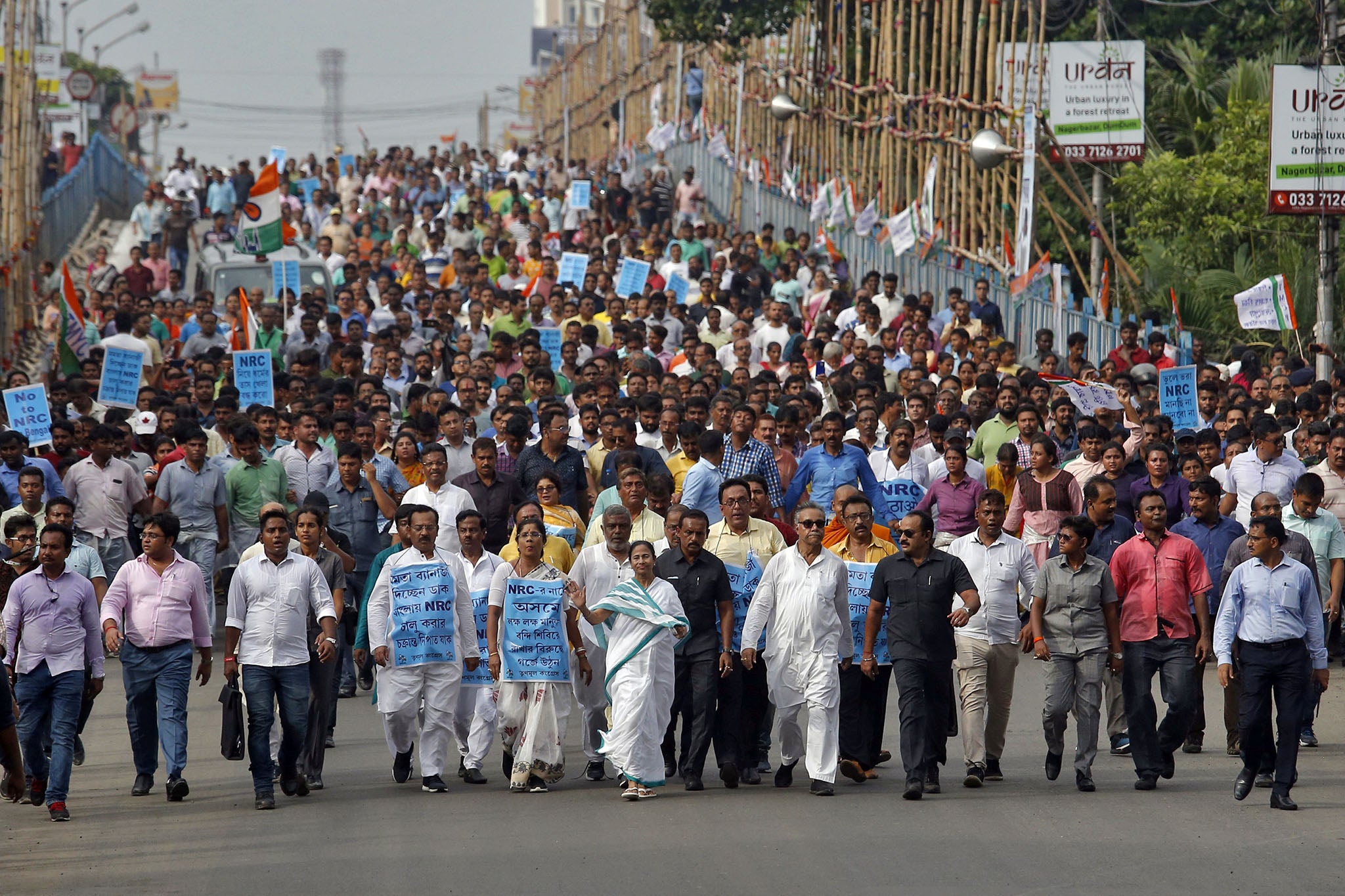
Though the Indian government rejects the idea of a link between events in the two states, they come after a second huge election victory for a Hindu nationalist BJP that stands accused of failing minorities and prioritising the Hindu majority. In the last couple of weeks, both state and central government officials have come out with statements designed to allay the fears of those left off the NRC, saying they have 120 days to appeal the decision at a local quasi-legal Foreigners Tribunal before, if they are unsuccessful, taking their case to the Assam High Court and ultimately the Supreme Court.
Yet for rights activists, such reassurances come far too late to a largely poor, mostly uneducated population in Assam, which has spent the better part of eight years with the threat of being declared “foreigners” or “Bangladeshis” – an insult in this part of the world – hanging over them.
Citizens for Justice and Peace, one of India’s largest human rights NGOs, has been working for two years on the NRC issue, travelling to remote villages to help isolated tribal communities get what little documentation they have in order. The non-profit organisation estimates it has assisted more than one million people navigate the bureaucratic nightmare of proving their right to citizenship.
In that time they have been tracking what they call “NRC-related deaths”: suicides by people who have been or feared being excluded from the list and who did not want to be a financial burden on their families through a lengthy appeals process. There have been 65 such deaths so far, said Teesta Setalvad, CJP’s national secretary, in an interview with The Independent.
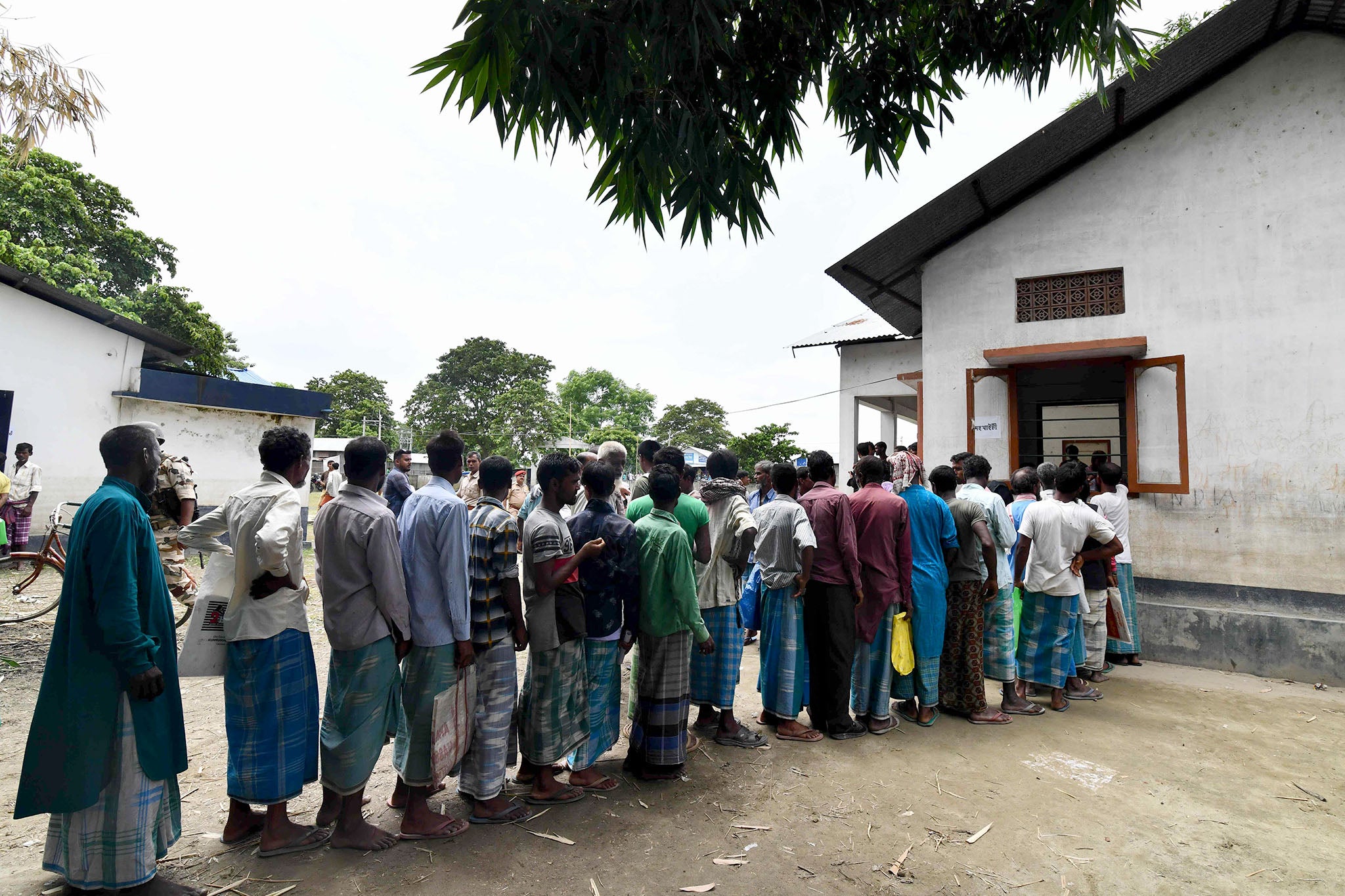
“The question is still open in terms of what happens to these people, and [no wonder] there is fear on the ground,” she said. “People who are teachers or who have government jobs don’t know if they will be allowed to work any more. There are so many rumours, about statelessness, about detention camps.”
The high number of suicides speaks to “very poor communication” between officials and the people of Assam, as well as a “complete lack of empathy”, she said. “It is really quite shocking and shameful that they can be playing with people’s lives like this. This is eventually a political issue, it should be dealt with in a mature political way.”
One victim of this political decision was Rahim Ali, a father of five living in the Muslim village of Banti Pur. He hanged himself the day before his five children were to appear in front of a Foreigners Tribunal, worried that they would be excluded from the list and sent to a detention camp, his wife Halimun Nessa told the Associated Press.
“He was saying we don’t have any money to fight this case. He was thinking that his children will be taken away. He went to the market, came back and did this,” she said. Another death came on 31 August itself when, after hearing rumours that her name was not on the list, 60-year-old Sayera Begum jumped into a well in northern Assam.
“She was dragged out of the well and taken to the hospital, but she died,” said Mukesh Agarwal, a senior Assam police official. An hour later, when the final list was released, it was found that Ms Begum, along with her husband and son, were not excluded after all.
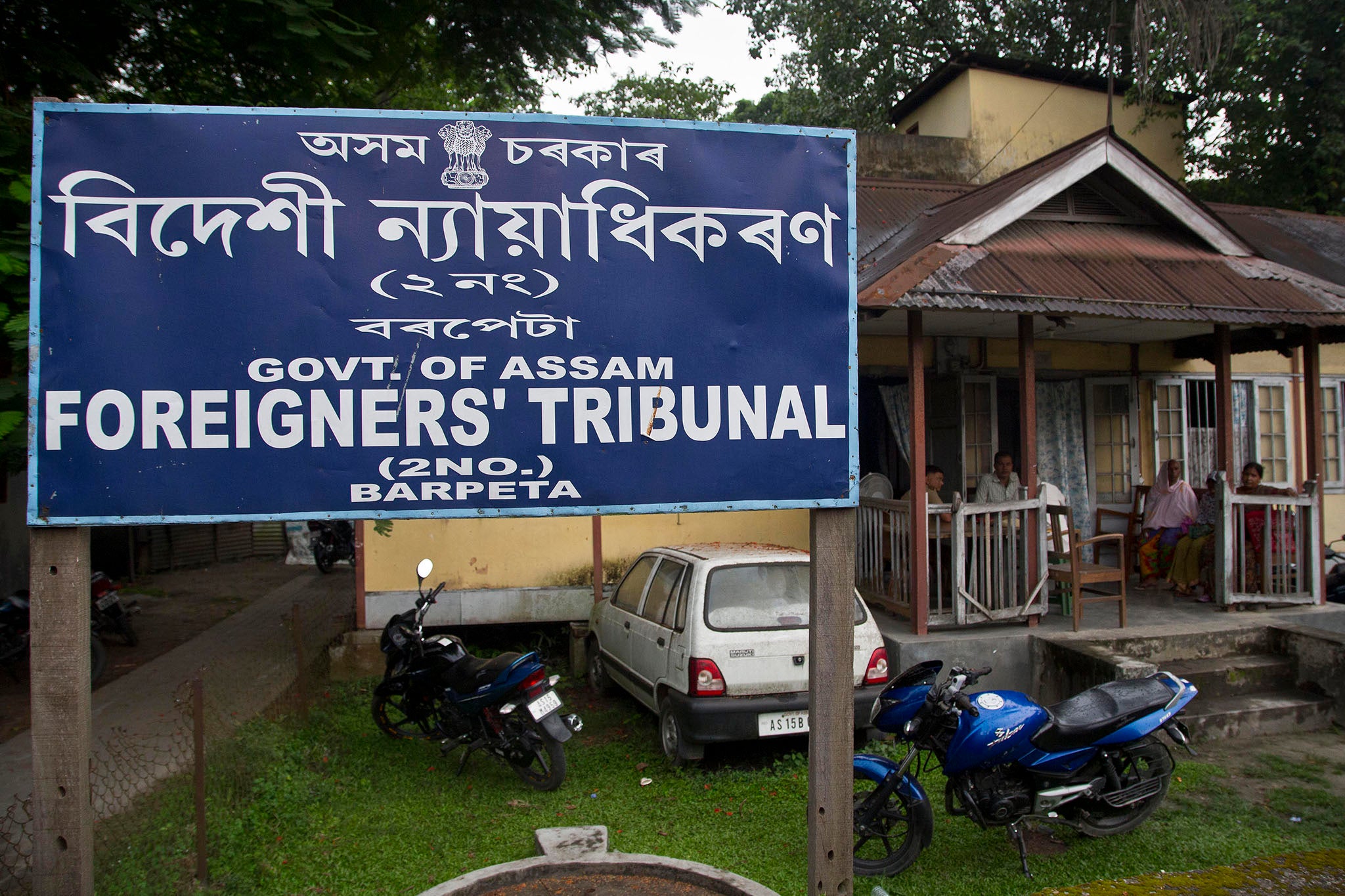
The UN has led international calls for clarity and the rights of people in Assam to be protected. Filippo Grandi, the UN high commissioner for refugees, said in a statement this month that India had a duty to ensure that no one ends up stateless as a result of being excluded from the NRC, “including by ensuring adequate access to information, legal aid, and legal recourse in accordance with the highest standards of due process”.
“Any process that could leave large numbers of people without a nationality would be an enormous blow to global efforts to eradicate statelessness,” he said.
Bizarrely, it is not just national and international rights groups who are unhappy with how the process has panned out; even those who have been calling for the updating of the NRC since the 1980s are upset. This is in no small part down to the fact that, as far as the government can tell, of the 1.9 million excluded from the list the split of Hindus and Muslims is roughly equal.
There are many examples of families where one spouse and some children have been included on the list, while the other half of the immediate nuclear family has been excluded.
And there are also some high profile cases of people from notable, historic Assamese families who have yet failed to make the cut. They include Sajid Ali Ahmed, a close relative of India’s fifth president Fakhruddin Ali Ahmed. Ahmed, 25, said he and his family were excluded just because one document relating to his grandfather, the president’s brother, had “the name spelled wrong”. “We got entangled in legal formalities and eventually our names did not appear in the citizens list,” he said.
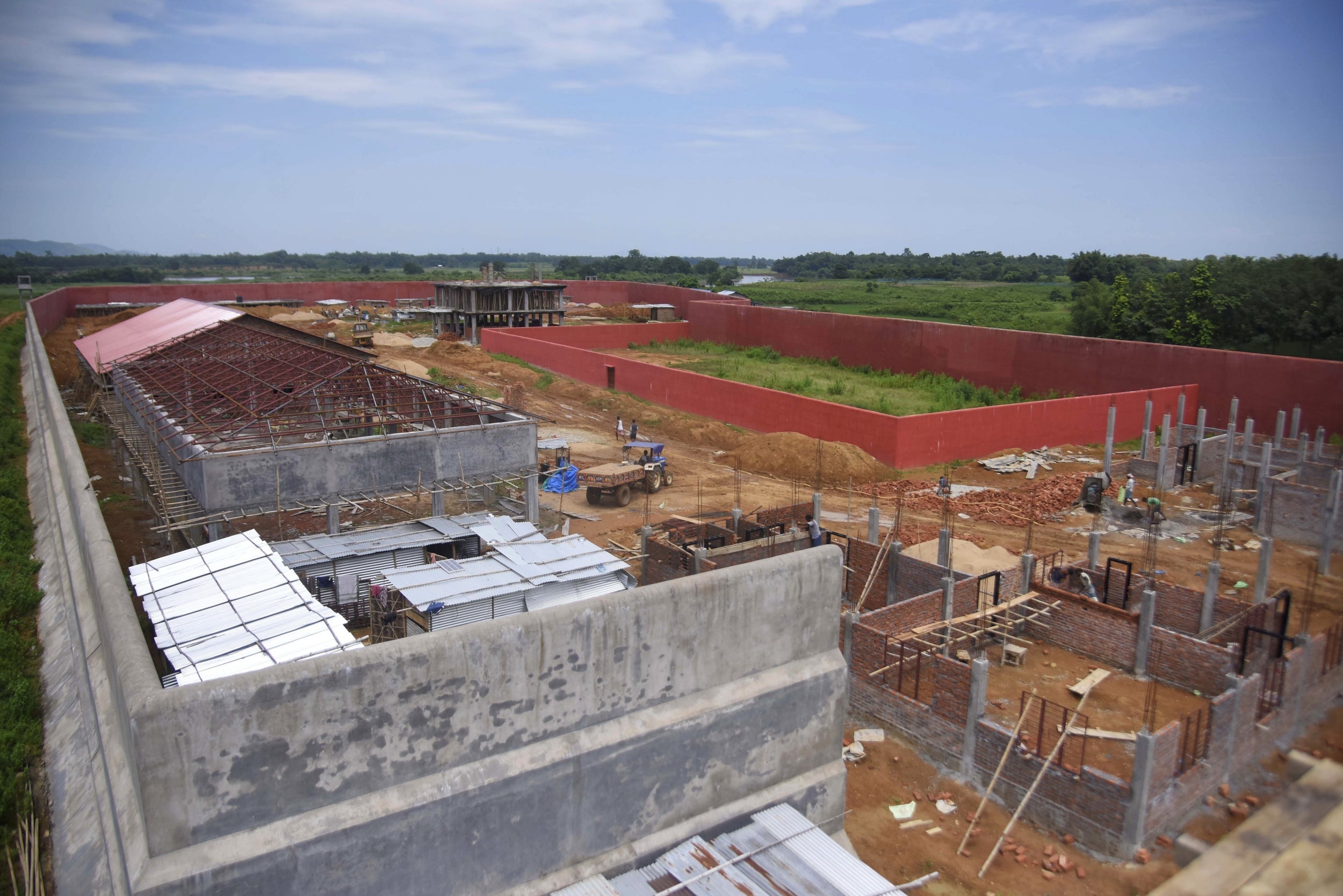
The leader of the BJP’s state arm in Assam, Ranjit Dass, effectively disowned the exercise, saying that “the NRC in its current form cannot be regarded as an error-free list of citizens”.
And even the All Assam Students Union, which spearheaded the anti-migrant movement of the 1980s and has been the main petitioner for decades in attempts to get the NRC updated, was critical of the outcome. AASU leader Samujjal Bhattacharya said the NRC was “not error-free. The names of indigenous people have been excluded while many foreigners have been included,” he said, adding that his group would appeal to the Supreme Court until “Assam [is] illegal migrant free”.
Yet despite all these issues, there are worrying signs that BJP leaders in other states are keen for their own “Assam-like” citizens’ lists. Yogi Adityanath, the firebrand former Hindu cleric who is now the BJP chief minister in populous Uttar Pradesh and one of the party’s most recognisable figures, insisted that he saw the implementation of the NRC in Assam as an “important and brave decision”.
Uttar Pradesh has a long border with Nepal, and Adityanath said Assam “can be an example for us… when [we] need an NRC, we will do so”. He said a list would “put a stop on the rights of poor being taken away by illegal immigration”, without specifying what rights those were. And Manohar Lal Khattar, the BJP chief minister of Haryana, said his state would begin work to “implement NRC along the lines of Assam”. He said a retired high court judge from the state, Justice HS Bhalla, would visit Assam “soon” and bring back recommendations for how to proceed.
Government sources said it was not currently the BJP’s policy that the NRC should be rolled out to other states. Officials said that Shah’s repeated pledges to do so were made during the election campaign only, and did not represent the government’s plans. As for what the government does actually plan to do with those excluded from the list in Assam, it remains unclear.
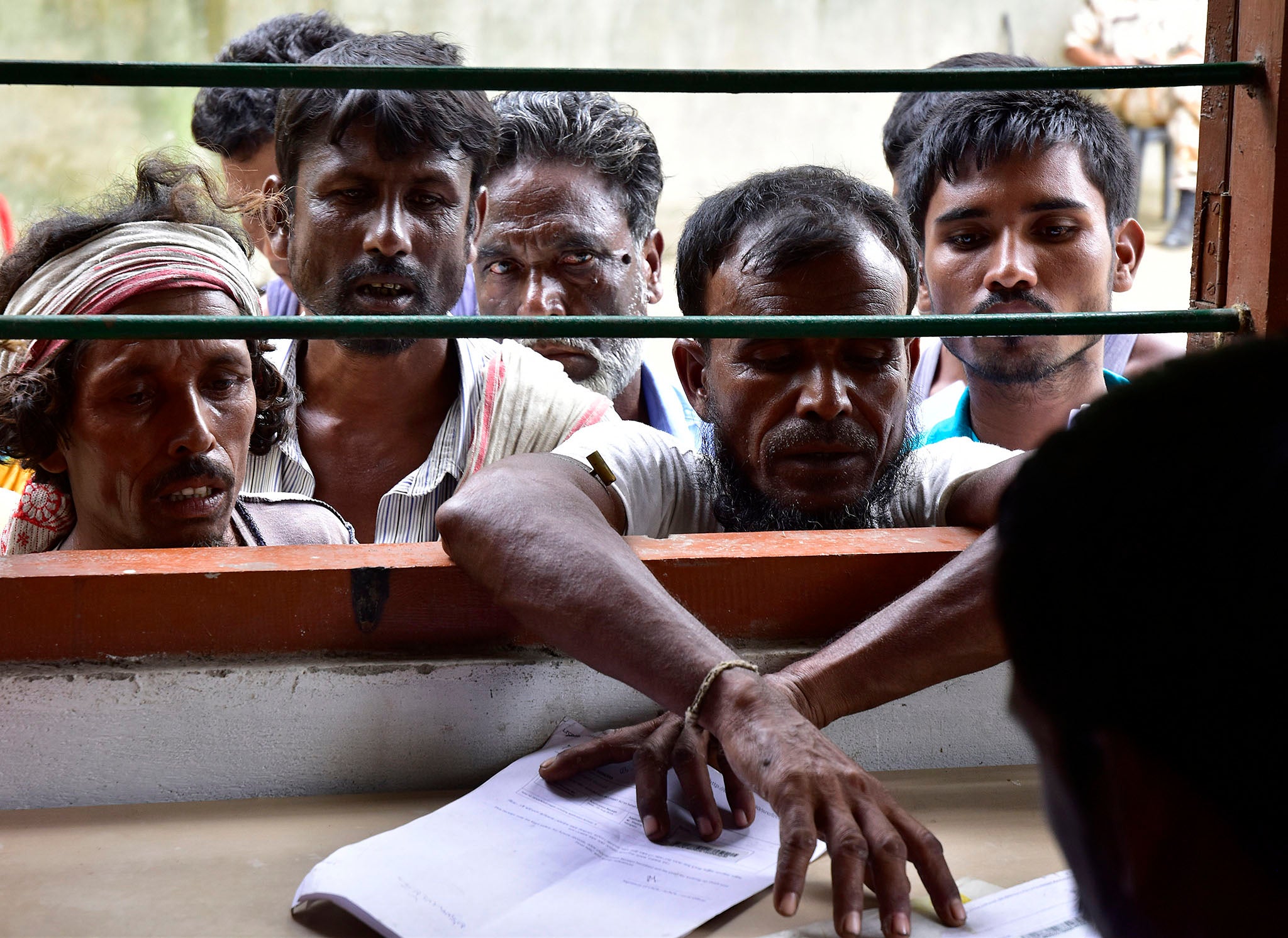
There is certainly no immediate prospect of anyone being “sent back” to Bangladesh. That much was made clear after the issue was brought up during a recent visit to Dhaka by the external affairs minister S Jaishankar, who told his counterpart that Bangladesh need not be concerned and that the NRC was India’s “internal matter” to deal with.
Assam currently has about 1,000 illegal immigrants, who have been declared as such by Foreigners Tribunals outside of the NRC process, detained in six existing facilities. It is near to completion of a seventh, much larger detention centre capable of housing 3,000 people, images and reports of which contributed to stoking the fears of NRC applicants whose cases were borderline. Local media reports last month quoted unnamed state officials as saying that there are plans to build as many as 10 more such facilities.
Even then, that would be nowhere near the capacity required to house the numbers currently excluded from the NRC. The government’s stance is that, in the short term, those excluded “will not be deprived of any rights or entitlements which they have enjoyed before” or detained, according to a statement from Raveesh Kumar, the government’s official spokesperson.
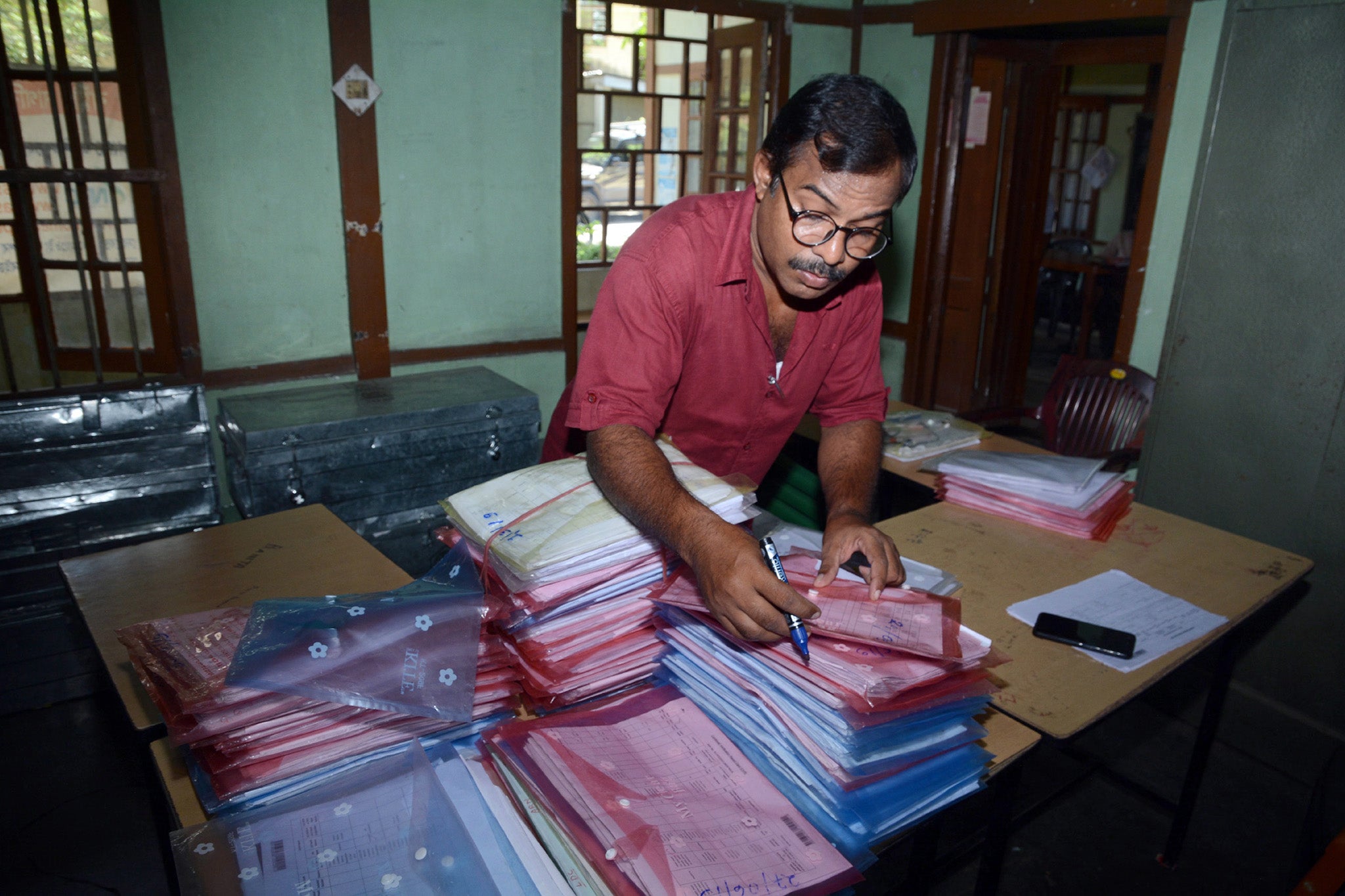
Yet during at-times heated exchanges in a recent briefing with international media in Delhi, government officials admitted that there was still a chance many people could be detained. “Until all legal channels are exhausted, nothing will happen to them,” an official said, a process that, including all appeals, could take years.
After that, well, “nobody has taken a decision. There are detention camps everywhere in the world,” the official said. “It is a possibility [that people will be detained]… everything is possible.”
In a recent statement, Amnesty International condemned what it called the “arbitrariness” of the NRC process, one that placed “immense pressure [and] emotional and psychological impacts” on millions of people without a clear end goal.
The international community, it said, had a duty to pressure India and “ensure justice for those victimised by the arbitrary and discriminatory procedure. Although the lives and years lost can never be reclaimed, it is still not too late to reverse what now seems an inevitable outcome of mass-disenfranchisement,” it added.
Join our commenting forum
Join thought-provoking conversations, follow other Independent readers and see their replies
Comments